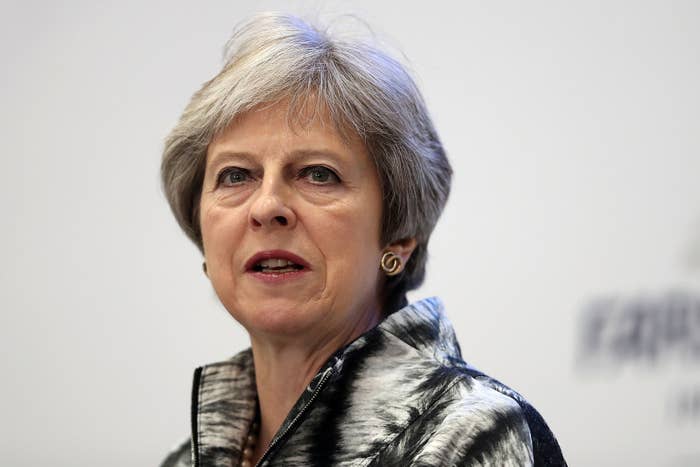
Theresa May’s plans for leaving the European Union received a boost on Tuesday night when she narrowly defeated a rebellion by pro-European Conservatives in the House of Commons.
By a count of 307-301, parliament voted against an amendment to the government’s trade bill which would have kept the UK in a customs union with the EU if May doesn’t get agreement by late January on her alternative solution to keep cross-border trade flowing after Brexit.
Twelve Tories, including several former cabinet ministers, voted against the government, but May was saved by four pro-Brexit Labour MPs who crossed the floor to back her.
The amendment — put down by Remain-supporting rebels who want the UK to stay closely aligned economically to the EU after leaving the bloc — would have narrowed the prime minister’s options as she tried to square the competing demands of the European Commission and her own bitterly-divided MPs.
Worse, defeat on such an important vote would have made her own position even more precarious.
Minutes earlier, the house passed an amendment designed to keep Britain under the EU's medicine regulation regime by four votes, 305 to 301. The only previous Brexit-related defeat May had suffered in the Commons came in December.
Tuesday's votes came at a time when the prime minister’s authority already seemed to be shrinking by the day, with furious MPs on both wings of the Tory party attacking her proposals for a Brexit compromise, a steady trickle of resignations from her government, and some MPs openly calling for her to be replaced.
In a last-ditch attempt to avoid a defeat, 10 Downing Street warned the Remainers that if their amendment went through, it increased the likelihood of a vote of no confidence in May's government.
The Brexiteers are staunchly opposed to staying in a customs union, which they argue would curtail the UK’s freedom to strike new trade deals with countries outside the EU after it leaves the bloc. Many who campaigned to leave regard those trade deals as the ultimate reward for making a clean break from Brussels.
This week was an important milestone in the Brexit process, with vital legislation on future trade and customs arrangements coming before parliament.
It has been another turbulent, hair-raising week for the prime minister and her aides, with Brexiteers on the warpath about the compromises she set out at Chequers on 6 July, and the Remainers lobbying to steer her in the opposite direction.
The European Research Group, the caucus of Eurosceptics led by Jacob Rees-Mogg who want a hard break from the EU, put down amendments to the customs and bills in an attempt to undermine May's Chequers plan.
On Monday, the government surprised observers by accepting four amendments proposed by the ERG. That, in turn, enraged the Remainers. More than a dozen pro-European Tories rebelled on two amendments late on Monday night, some of whom then voted against two of the amendments when they were put to a vote late on Monday night. May scraped through both by only three votes.
On Tuesday, she narrowly escaped again.
